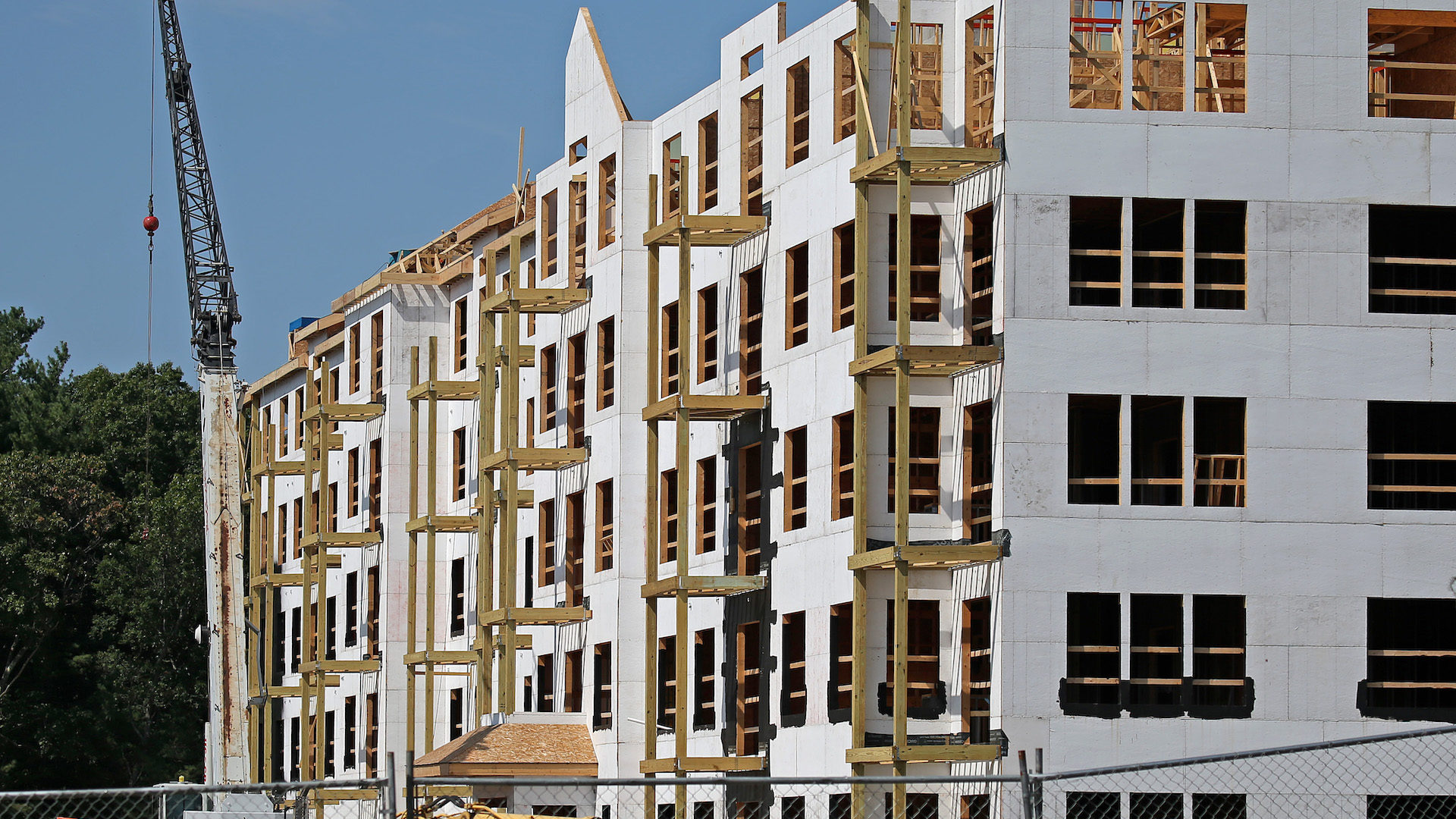Invest in America’s Infrastructure by Expanding Access to Affordable Housing

One of the enduring lessons of the COVID-19 pandemic is how fundamental housing is to us all. As the pandemic raged, our homes became places of safety and sanctuary. Spending more time at home became a public health imperative—with our homes transformed into full-time places of work and school. In the post-pandemic world, working at home will likely be the “new normal” for tens of millions of Americans.
Unfortunately, at a time when homes are becoming even more central to our lives, too many Americans are facing severe housing affordability challenges. There is less housing available for rent or sale than at any time in the past 30 years, as the annual supply of new homes runs some 100,000 behind new housing demand. In total, the construction of new housing in the past 20 years fell over 5.5 million units short of long-term historical levels. With supply so scarce and demand so high, it is no surprise that rents and home sale prices are skyrocketing.
The result of this supply-demand mismatch is that millions of households—most with low and moderate incomes—are burdened with unsustainable rents, often exceeding 50% of their monthly paycheck. Communities with rising rents and cost burdens, not unexpectedly, see commensurate increases in homelessness.
At the same time, millions of potential first-time homebuyers—many of them millennials born in the 1980s and 1990s—are being priced out in their local housing markets and blocked from stepping on the first rung of the homeownership ladder. The result is fewer households benefiting from the wealth-building opportunities that owning a home can provide.
We cannot ignore the racial dimensions of the housing affordability crisis either. People of color are dramatically overrepresented among those experiencing homelessness, with African Americans representing about 40% of the homeless population even though they represent only 13% of the general population. Black, Native American, and other people of color are also disproportionately represented among those who pay unaffordable rents, often in substandard homes located in communities with few opportunities.
Racial gaps in rates of homeownership are similarly stark: while today’s white homeownership rate is 73.8%, the rate for Hispanics is 49.3% and for Blacks is 45.1%. Multiple studies have shown that family wealth is intimately connected to homeownership: the median net worth of homeowners is more than 40 times that of renters. Taking proactive steps to close the racial gaps in the homeownership rate is essential to creating a more just and fair society that will benefit everyone.
We are heartened that several important housing initiatives are being considered in the ongoing discussions about how to upgrade America’s infrastructure. Importantly, many of these initiatives also enjoy strong bipartisan support. Significantly expanding the Low-Income Housing Tax Credit, a program initially created by Sens. George Mitchell (D-ME) and John Danforth (R-MO), can help harness tens of billions of dollars in private investment to build and preserve millions of affordable rental homes. And, when paired with additional subsides at the state and local level, LIHTC can help expand housing opportunities and choice to individuals with extremely low incomes. Similarly, enacting the bipartisan Neighborhood Homes Investment Act would encourage much-needed private investment in the construction and rehabilitation of affordable homes to first-time homebuyers.
In addition, there is bipartisan consensus on the imperative to address the longstanding capital needs of the nation’s deteriorating and diminishing stock of public housing. To this end, many Democrats and Republicans support the innovative Rental Assistance Demonstration, which leverages private capital to preserve and modernize affordable rental housing.
A particularly important idea now under consideration is the creation of a competitive grant program to encourage local communities to reform their zoning and land-use practices to ensure they do not inflate housing costs and prevent families from living in areas with greater employment and other opportunities. Whether intended or not, these “exclusionary” practices often result in racial and economic segregation. Support for removing regulatory barriers to affordable housing runs deep in both parties, with former U.S. Secretary for Housing and Urban Development Jack Kemp one of the most passionate advocates of this approach.
Investing today to help restore our roads and bridges, strengthen the transportation networks, upgrade the electrical grid, and improve our wastewater systems has the potential to pay huge dividends over time for the U.S. economy. Likewise, making significant investments in affordable housing can help power economic growth, enhance economic mobility, and promote racial justice.
New home-building activity will have a substantial ripple effect throughout the U.S. economy, leading to the creation of tens of thousands of jobs, more income for local businesses, and greater tax revenue that can help fund essential services. Improving access to stable, affordable housing can also lead to better health outcomes for families and stronger academic achievement for children.
As Congress and the White House continue their discussions on an infrastructure package, there is no doubt that tough choices will be necessary. But, regardless of the outcome of these discussions, expanding access to affordable housing is and must remain an urgent national priority. In the coming months, BPC’s Housing Advisory Council will continue to identify and promote bipartisan housing policies that can help boost our country’s economic recovery while advancing racial equity and opportunity.
Henry Cisneros is the former Secretary of the U.S. Department of Housing and Urban Development, former mayor of San Antonio, Texas, and a Board Member of the Bipartisan Policy Center. Pamela Hughes Patenaude is the former Deputy Secretary of the U.S. Department of Housing and Urban Development and a Board Member of the Bipartisan Policy Center. They serve as co-chairs of the Bipartisan Policy Center’s Housing Advisory Council.
